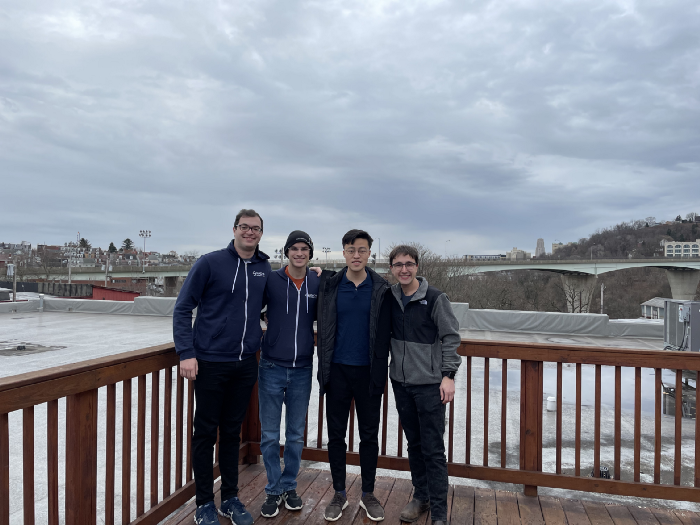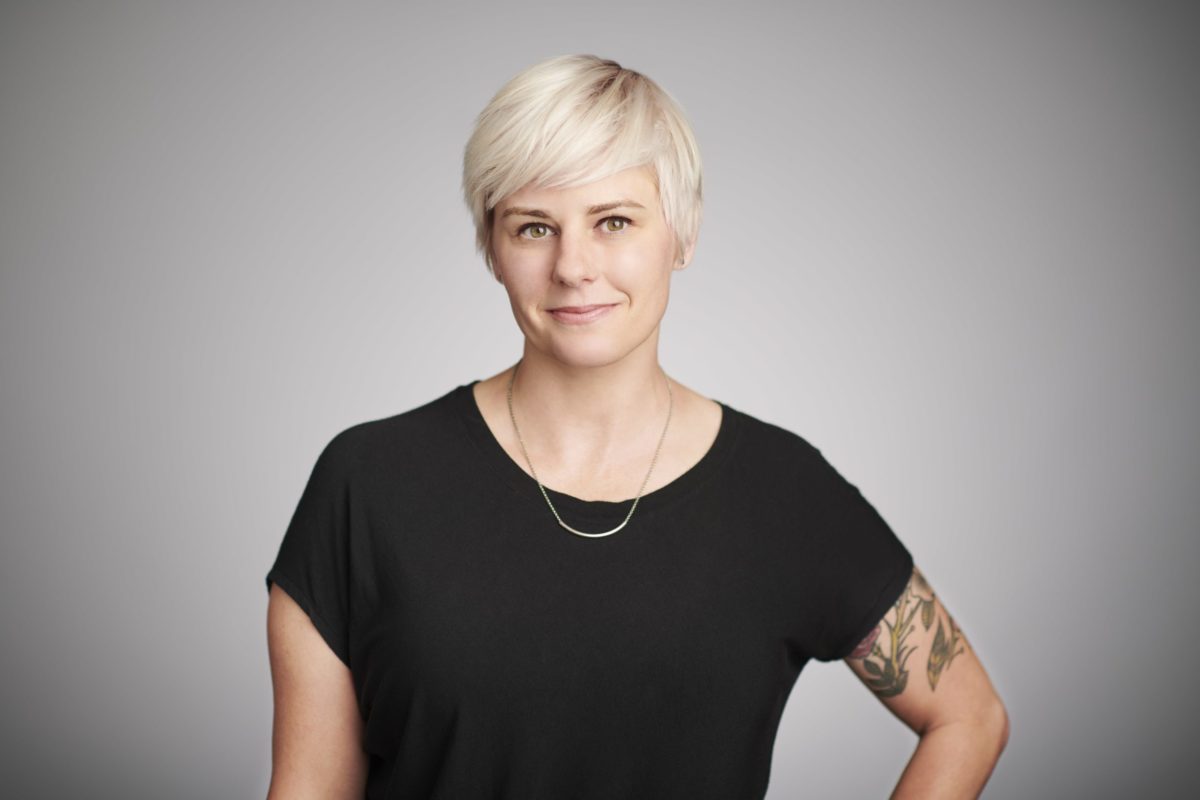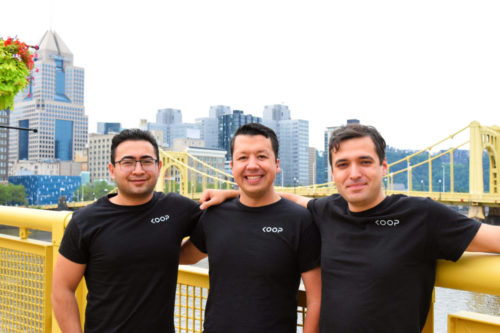What’s it like to launch a company in Pittsburgh these days?
The founders of Technical.ly’s RealLIST Startups know. Launched within the last three years, the companies recognized on our annual list of most promising young tech companies have faced more unique challenges than ever before with the onset and persistence of the pandemic. Still, many of them have reached significant milestones across funding, national awards, customer acquisition and more.
In a roundtable discussion with a handful of founders on the list (plus one seasoned startup veteran), Technical.ly heard about the pros and cons of growing a startup in Pittsburgh today. From shouting louder about the lifestyle that’s possible here to supporting entrepreneurs at higher growth stages, here are the biggest takeaways from that conversation.
Pittsburgh needs to be more connected to other tech hubs
Though Pittsburgh’s own tech scene is rapidly growing, some founders shared that if the city did better at looking past its own success and connecting to other cities, it might be easier to access some of the funding and resources that Pittsburgh is still too small to provide. Logistically, that could happen by increasing the number of transportation pathways to other cities via more direct flight options — but also by convening industry leaders from across the country here.
“I travel a lot as part of our commercialization strategy,” Koop Technologies cofounder and Chief Commercial Officer Kamron Khodjaev said. “We are thought leaders and attend a bunch of conferences for robotics, autonomous vehicles, etc. And they all happen elsewhere.”
With the amount of event space and cultural benefits Pittsburgh has to offer, Khodjaev and other founders said it would be easier to grow a business here if it were easier to access the kind of big networking events that exist elsewhere: “I wish there was more here where I could just cross the bridge and be there.”
Pittsburgh needs to market itself better to potential tech talent
In a similar line of thinking, some startup founders believe that company growth around talent and hiring could be difficult simply because people outside Pittsburgh still have yet to understand all of the impressive tech activity going on here.
“Being able to demonstrate that Pittsburgh is not just some flyover city, but it’s an amazing place to live, is certainly something that we can all just generally continue to do a better job at,” Mach9 Robotics cofounder and CEO Alexander Baikovitz said.

The Mach9 Robotics founding team. (Courtesy photo)
And while part of that message involves telling the business success stories of the tech industry, it also means advertising the good food scene or parks systems that contribute to the well-rounded lifestyle possible in Pittsburgh.
“Recently I read an article about how somebody was trying to create a utopia city, where everything is only within a 15- to 20-minute drive,” said Melinda Su En Lee, cofounder and CEO of Parcel Health, who recently moved here from Ann Arbor, Michigan. “I was like, wait, that’s Pittsburgh. Everything here is within a 15- to 20-minute drive. I think it’s one of those cities that don’t get advertised a lot as being a great city, but once you live in it, you really come to appreciate how good the city is.”
The tech community loves to support its own

Lynsie Campbell. (Courtesy photo)
Lynsie Campbell has a unique perspective of what the city gets right when it comes to entrepreneurship. A former Pittsburgh founder, newly appointed startup czar for the Pittsburgh Regional Alliance and cofounder of upcoming startup studio Hooman, she has moved away and returned to Pittsburgh three times.
“I think one of the reasons that I’ve come back is that this is the size city where you can have an impact really quickly,” she said. “You can get to know a lot of people, you can get the introductions. People don’t hold their contacts close to their chest like they do in some other cities.”
That sense of community extends even beyond tech and business relationships, said Armin Samii, the founder of Robot Armin, a startup specializing in making dashcams for bikes.
“The Pittsburgh community is so tight-knit, and those are my potential clients and potential customers, and I feel more connected to the Pittsburgh biking community that I have to any other biking community,” said Samii, whose startup is part of the most recent cohort for PGH Lab. “I can get on a call with PGH Lab, and you’re right, they don’t hold contacts close to their chest. BikePGH will happily set up a meeting between me and [a councilperson]. These are things that you don’t get in bigger cities.”
It’s easy to get early traction for your company — to a point

Talpha Harris. (Photo via LinkedIn)
Talpha Harris, a former Venture for America fellow and now cofounder-CEO of Sustainible — a business model assessment startup launched in 2020 — first moved to Pittsburgh when the VFA fellowship placed her here.
“Pittsburgh kind of stood out for me because it’s [in the] Rust Belt and it really has a vibrancy to it,” said Harris, who grew up in a small town. “And then also the support around ideas and generation and determining if there’s a need to fix something in the community or help someone out — there’s no hesitancy whatsoever to jump at it from Pittsburghers.”
Lee, whose sustainable medication packaging startup is a part of the current AlphaLab Health cohort, underscored that sentiment around finding support for early business needs.
“For us, our next stage is really getting our distribution strategy up and going,” she said. “And so honestly, I’ve been very glad that we’re in Pittsburgh, because I know I have confidence that being able to find warehousing and staff to set up our distribution strategy is going to be much easier and much more cost effective compared to many, many other cities.”
But Campbell summarized several founders’ sentiments about the challenges of getting to a higher stage of growth in terms of hiring, funding and customer acquisition:
“It’s a great place to plant your roots and gain initial traction,” she said. “But very quickly, you need to figure out how to move into other markets and prove your technology and prove your business in other places.”
Sophie Burkholder is a 2021-2022 corps member for Report for America, an initiative of The Groundtruth Project that pairs young journalists with local newsrooms. This position is supported by the Heinz Endowments.Before you go...
Please consider supporting Technical.ly to keep our independent journalism strong. Unlike most business-focused media outlets, we don’t have a paywall. Instead, we count on your personal and organizational support.
Join our growing Slack community
Join 5,000 tech professionals and entrepreneurs in our community Slack today!

The person charged in the UnitedHealthcare CEO shooting had a ton of tech connections

From rejection to innovation: How I built a tool to beat AI hiring algorithms at their own game

Where are the country’s most vibrant tech and startup communities?


